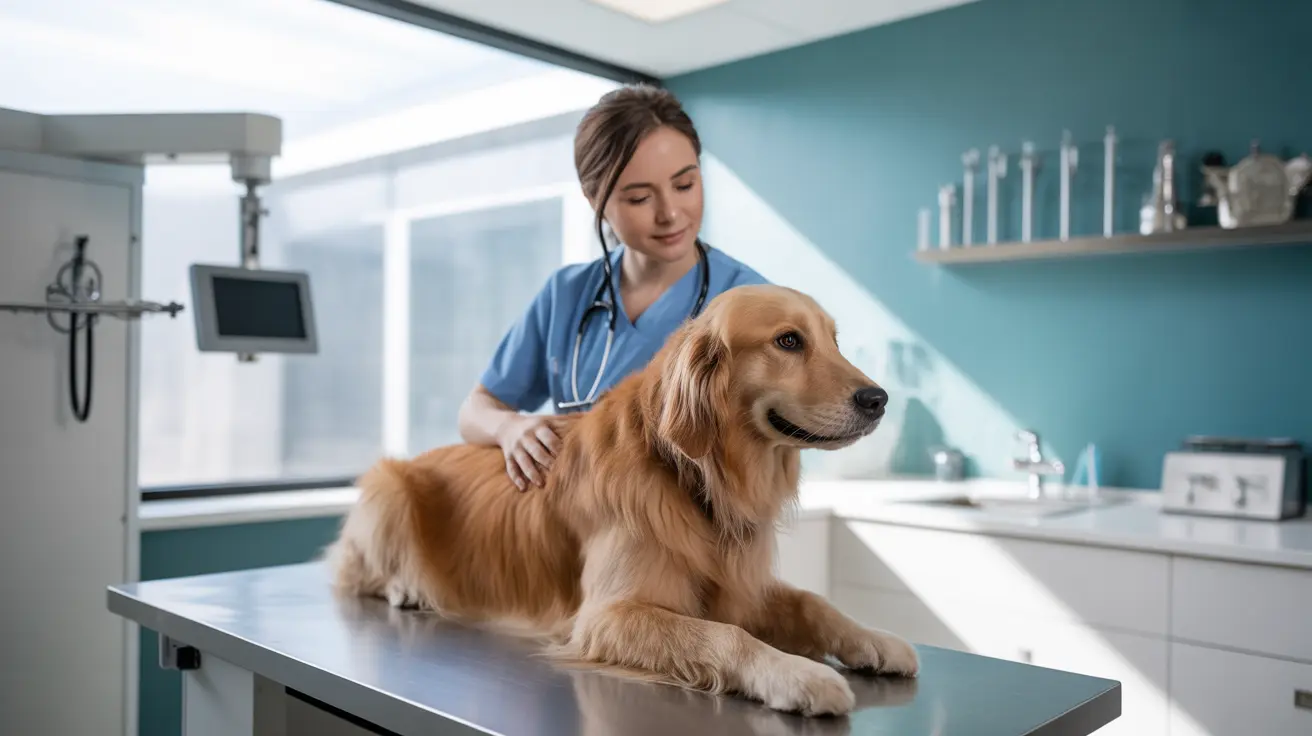When your dog keeps shaking their head persistently, it's more than just a quirky behavior – it could be signaling various underlying health issues that require attention. From common ear infections to allergies and more serious conditions, understanding why dogs shake their heads and knowing when to seek veterinary care is crucial for every pet owner.
This comprehensive guide explores the various causes of dog head shaking, helps you identify warning signs, and provides insights into treatment options and preventive measures. Whether you're dealing with an acute episode or chronic head shaking in your canine companion, this information will help you make informed decisions about your pet's health.
Common Causes of Dog Head Shaking
Ear Infections and Inflammation
Ear infections, known medically as otitis, are among the leading reasons dogs shake their heads. These infections can be caused by bacteria or fungi and often occur when moisture is trapped inside the ear canal, fostered by activities like swimming or bathing. Allergies can further predispose dogs to such infections. Typical signs of ear infections include:
- Redness and swelling in the ear canal
- Yellowish or brown discharge
- Unpleasant odor
- Increased scratching around the ears
Addressing ear infections promptly is important, as failure to treat them can result in chronic discomfort or more serious complications like hearing loss.
Allergic Reactions
Allergies—whether from the environment, food, or flea bites—can cause irritation that leads your dog to shake their head in an attempt to relieve discomfort. Allergic reactions are not limited to the ears and may affect the skin or other body areas. Common signs indicating allergies as a cause include:
- Persistent ear scratching
- Redness of the skin
- Excessive licking of paws
- General skin irritation
Identifying and managing the underlying allergy can help reduce head shaking and improve your dog's quality of life.
Identifying Warning Signs
Physical Symptoms
The physical signs of ear problems in dogs can be subtle or quite noticeable. Early detection is crucial in preventing more severe health issues. Be on the lookout for:
- Visible inflammation or redness inside or around the ears
- Discharge from the ears, which may range in color or consistency
- Crusty or scaly skin around the ear canal
- Obvious discomfort, such as yelping or shying away when the ears are touched
Regularly inspect your dog's ears as part of their grooming routine to catch issues promptly.
Behavioral Changes
Changes in your dog's behavior may also signal ear discomfort or other health concerns. Some notable behaviors include:
- Frequent head shaking and ear scratching, often more than usual
- Rubbing their head against furniture or the floor as if to get relief
- Increased irritability or signs of being unsettled
- Changes in balance or coordination, which might suggest a more advanced ear issue or involvement of the inner ear
Behavioral indicators, even if mild, should not be overlooked, especially if they persist for more than a day or two.
When to Seek Veterinary Care
While occasional head shaking is a natural way for dogs to clear their ears, persistent or intense head shaking can indicate a serious health concern and should be evaluated by a veterinarian. You should seek prompt veterinary attention if you notice any of the following:
- Persistent head shaking lasting more than 24 hours
- Signs of pain or distress such as whimpering or hiding
- Presence of blood, pus, or other unusual discharge in or around the ear
- Loss of balance, stumbling, or visible changes in coordination
Timely intervention can prevent complications like deeper infections, ear hematomas, or even long-term damage to the ear structures.
Treatment Approaches
Medical Interventions
Treating the root cause of head shaking is pivotal for long-term relief. Upon diagnosis, veterinarians may recommend several treatments, including:
- Professional ear cleaning to remove debris or buildup, making the ears less hospitable to bacteria and yeast
- Prescribed medications, such as topical or oral antibiotics and antifungals, to address infections and inflammation
- Treatment of underlying conditions, such as allergies, which may involve antihistamines or dietary adjustments
- Regular monitoring and follow-up appointments to ensure the problem has been fully resolved
Following your veterinarian’s instructions precisely will increase the chances of successful treatment and reduce the likelihood of recurrence.
Home Care and Prevention
Ongoing care at home is vital for preventing new episodes of ear issues. Effective preventive measures include:
- Regularly cleaning your dog's ears with products recommended by your veterinarian to remove excess wax and dirt without causing irritation
- Keeping ears dry after swimming or bathing, as moisture promotes infections
- Monitoring your dog for early signs of ear problems and acting quickly if symptoms appear
- Maintaining proper grooming habits, especially for breeds with long or floppy ears, to ensure good air circulation around the ear canal
Proactive ear care goes a long way in keeping your canine comfortable and healthy.
Frequently Asked Questions
- What causes head shaking in dogs? Common causes include ear infections, allergies, ear mites, or neurological issues. Each of these problems can lead to discomfort or irritation inside the ear, triggering the shaking response as the dog attempts to find relief.
- When should I be concerned about my dog shaking its head? If head shaking is frequent, persistent, severe, or accompanied by other symptoms like redness, discharge, or behavioral changes, you should contact your veterinarian for evaluation to rule out serious conditions.
- Can allergies cause head shaking in dogs? Yes, allergies can lead to itchy, inflamed ears, which can prompt head shaking and scratching. Managing the underlying allergy often reduces these behaviors.
- How are ear infections in dogs treated? Veterinarians typically prescribe medicated ear drops or ointments and may thoroughly clean your dog's ears. In some cases, oral medication is necessary, especially if the infection is severe.
- What are warning signs of ear problems in dogs? Signs include redness, discharge, odor, swelling, excessive scratching, and signs of pain around the ears. These symptoms warrant a prompt veterinary check-up.
- Can head shaking injure my dog? Yes, vigorous and prolonged head shaking can lead to ear hematomas (burst blood vessels in the ear flap), increase inflammation, or aggravate infections, sometimes making treatment more difficult.
- Are some breeds more prone to head shaking? Breeds with floppy ears or hairy ear canals, such as Cocker Spaniels, Basset Hounds, and Poodles, are at increased risk due to less air circulation and more opportunities for debris to accumulate.
- How can I prevent ear infections in my dog? Keep ears clean and dry, schedule regular veterinary check-ups, and ensure early intervention if symptoms of infection appear. Good grooming and ear care are especially important for at-risk breeds.
- Is head shaking always related to the ears? Not always; in some cases, head shaking may be a sign of neurological issues, dental pain, or systemic health problems. Persistent or severe cases should be investigated by a veterinarian.
- What should I do if home remedies don't work? If symptoms persist after initial care, or if your dog’s condition worsens, seek veterinary attention promptly for proper diagnosis and tailored treatment.
- Can I use over-the-counter ear cleaners for my dog? Only use products recommended by your veterinarian, as some over-the-counter solutions can cause irritation or adverse reactions, especially if the ear drum is compromised.
Understanding and addressing dog head shaking promptly can prevent more serious complications and ensure your pet's comfort and well-being. While some cases may resolve with basic care, persistent symptoms should always be evaluated by a veterinary professional to ensure proper diagnosis and treatment.






